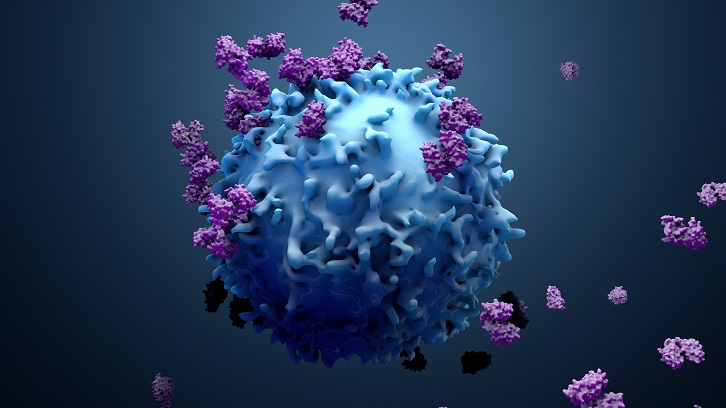Purification of the peptides involved in the maturation of T lymphocytes in the human thymus

The study of the peptides recognized by the thymocytes in the human thymus has importance to know the process of maturation of T lymphocytes. A UAB researcher has published a protocol to purify the peptides repertoires associated to HLA molecules in the thymus and their analysis by mass spectrometry required for the maturation and learning of T lymphocytes in the human thymus.
The adaptive immune response consists of a humoral response (carried out by antibody-producers B lymphocytes) and a cellular response (carried out by T lymphocytes). T cells are essential to eliminate tumor or virus-infected cells (cytotoxic CD8 T lymphocytes) and to lead antibody synthesis and the activation or other cells during the immune response (helper CD4 T lymphocytes). Each individual T lymphocyte expresses a specific receptor (TCR). This translates into a very high number or different TCRs. The generation of such number or receptors is produced by random combinations of gene segments, which implies that many T lymphocytes can be non-functional or dangerous to the individual.
To avoid the circulation of non-functional or potentially dangerous (autoreactive) T cells, immature T lymphocytes suffer an exhaustive process of "learning" in an organ called thymus, which is named thymic selection. Thymocytes interact through their specific TCR with complexes composed by a presenting protein called major histocompatibility complex (MHC, HLA in humans) molecules and protein fragments (peptides) bound to them. In the thymus these peptides come from self-proteins and thymocytes recognizing these complexes with high affinity (which would exit the thymus as autoreactive T lymphocytes) are eliminated in the thymus. During the immune response, mature and functional T lymphocytes will be activated only against complexes containing peptides from pathogens or mutated proteins in the case of cancer. It is important to highlight that each HLA molecule can bind thousands of different peptides, what highly complicate their analysis. This analysis is made by mass spectrometry.
Recently, Dr. Iñaki Alvarez, associate professor of the Immunology Unity of the Cellular from the UAB Department of Biology, Physiology, and Immunology has published a protocol used previously by his research group to purify, fragment, and analyze the immunopeptidomes associated to HLA molecules in the human thymus. The protocol has been published as a book chapter in the book "Clinical Proteomics: Methods and Protocols” (Methods in Molecular Biology, 2420) of the Humana editorial. In this chapter it is explained in detail all the process of sample handling, HLA typing, peptidome purification, the fragmentation by chromatography, the analysis by mass spectrometry and the peptide identification.
Immunology Unit, Department of Cell Biology, Physiology, and Immunology
Universitat Autònoma de Barcelona
References
Purification of HLA immunopeptidomes from human thymus.(2022) Methods in Molecular Biology, Chapter 10.
Fernando J. Corrales, Alberto Paradela and Miguel Marcilla (eds.), Clinical Proteomics: Methods and Protocols, Methods in Molecular Biology, vol. 2420, DOI: 10.1007/978-1-0716-1936-0_10. eBook ISBN: 978-1-0716-1936-0. Hardcover ISBN: 978-1-0716-1935-3. Series ISSN: 1064-3745.

